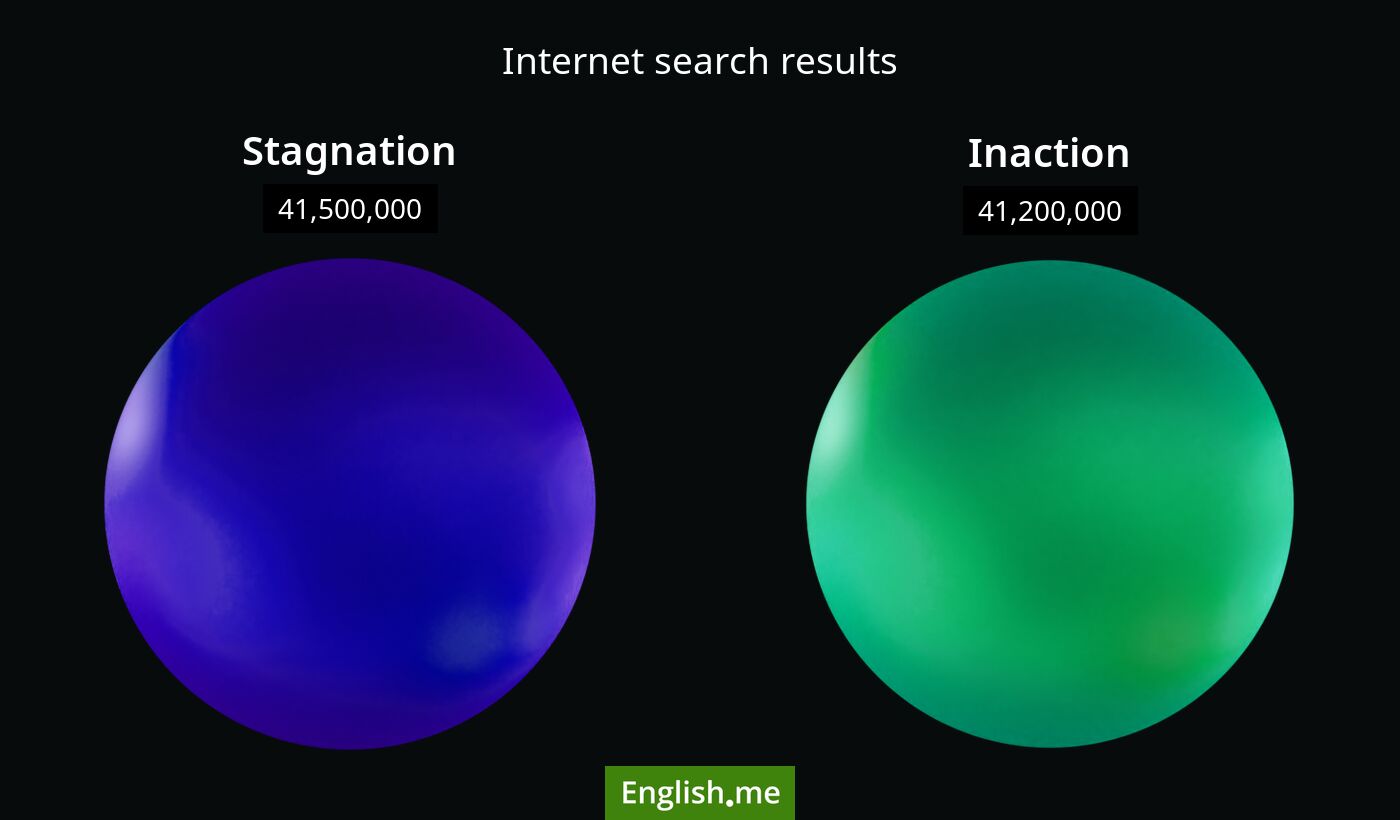"Stagnation" vs. "inaction": stillness in words
Reviewed and edited by  Lloyd Cooper 04/10/2024, 05:28
Lloyd Cooper 04/10/2024, 05:28
English.me team member

 What is similar?
What is similar?
Both refer to a lack of movement or progress.
 What is different?
What is different?
Stagnation often implies a lack of growth or activity, typically in a context where growth is expected, such as in economies or development. Inaction refers specifically to a lack of action or decision, suggesting a choice or failure to act.
 Which one is more common?
Which one is more common?

 Examples of usage
Examples of usage
Stagnation- The stagnation of the company's sales worried the investors.
- Economic stagnation can lead to increased unemployment and social unrest.
- His inaction during the crisis was criticized by everyone.
- The government's inaction on climate change is causing concern.

 English
English español
español française
française italiano
italiano deutsche
deutsche 日本語
日本語 polski
polski česky
česky svenska
svenska Türkçe
Türkçe Nederlands
Nederlands